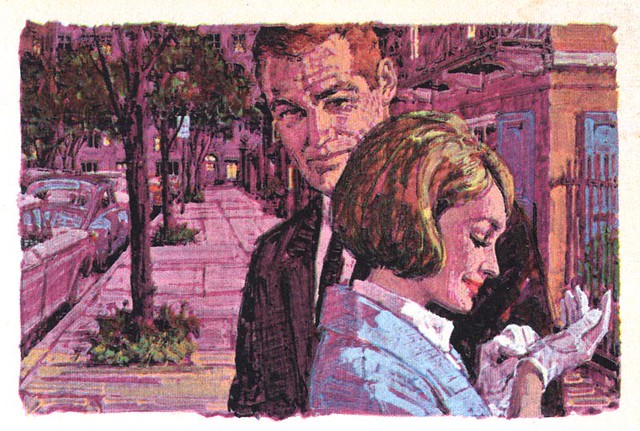
MC: I didn't have a baby when I started [in the illustration business] but my husband was never able to take care of us. Before there was that women's lib crap and all that stuff I was - are you married?
LP: I am, yeah. We have two teenage sons.
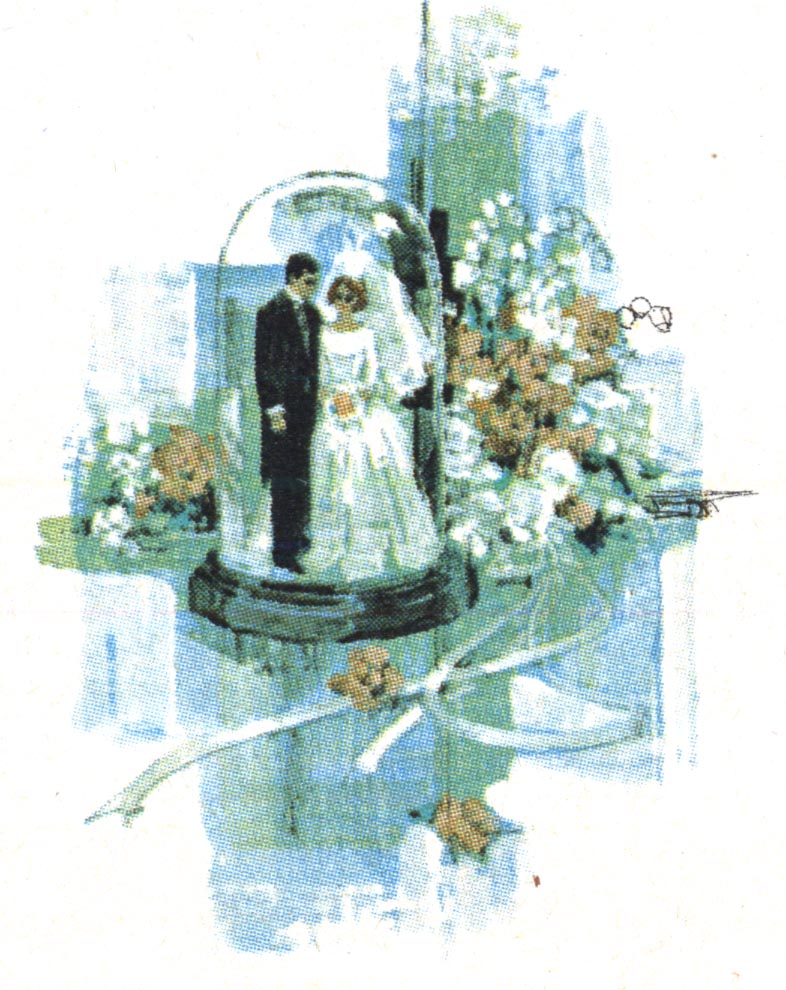
MC: Did your wife work during their childhood?
LP: I was fortunate to make enough as an illustrator that she could stay home with the boys until they were ten or eleven years old.
MC: That is heaven. If I could have been able to do that - but I couldn't. The day they were born my husband came up to the hospital and gave me a comprehensive sketch to do. We were working together at that time. I did have a second child but - I mean, it is a devastating thing for a woman to be in that kind of competitive business. It was very competitive and I had to be the best or we sank. To do that and try and be there for your children is an impossibility.
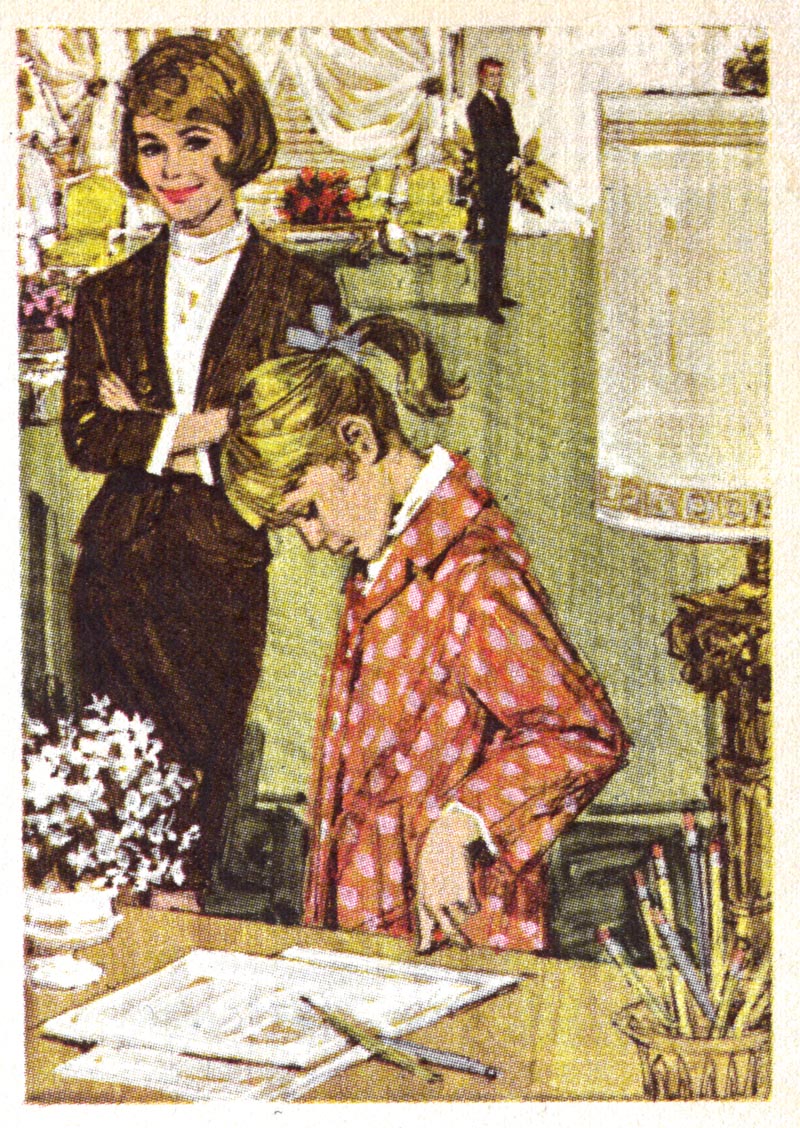
MC: I mean I was there and I did it but I look back with the most painful feeling about all the years I illustrated. Getting into New York and onto Time magazine and all that - it was nightmarish. A woman with no help. We split up after about seventeen years when the children were about twelve and nine and it's not a happy thing for me to talk about and I almost feel sick thinking about all those people.
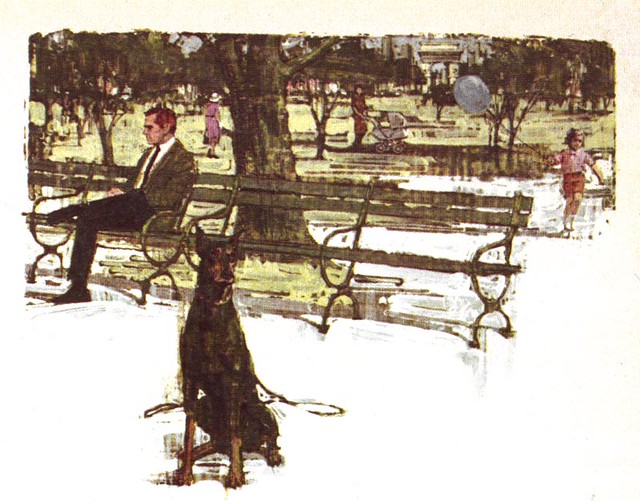
LP: Wow.
MC: I mean I loved them but... oh, another one (kind of a third rate one, but) Bob Abbett? Have you talked to him?
LP: I actually featured his work not too long ago, yeah.
(below, a 1964 Bob Abbett illustration from Reader's Digest Condensed Books)
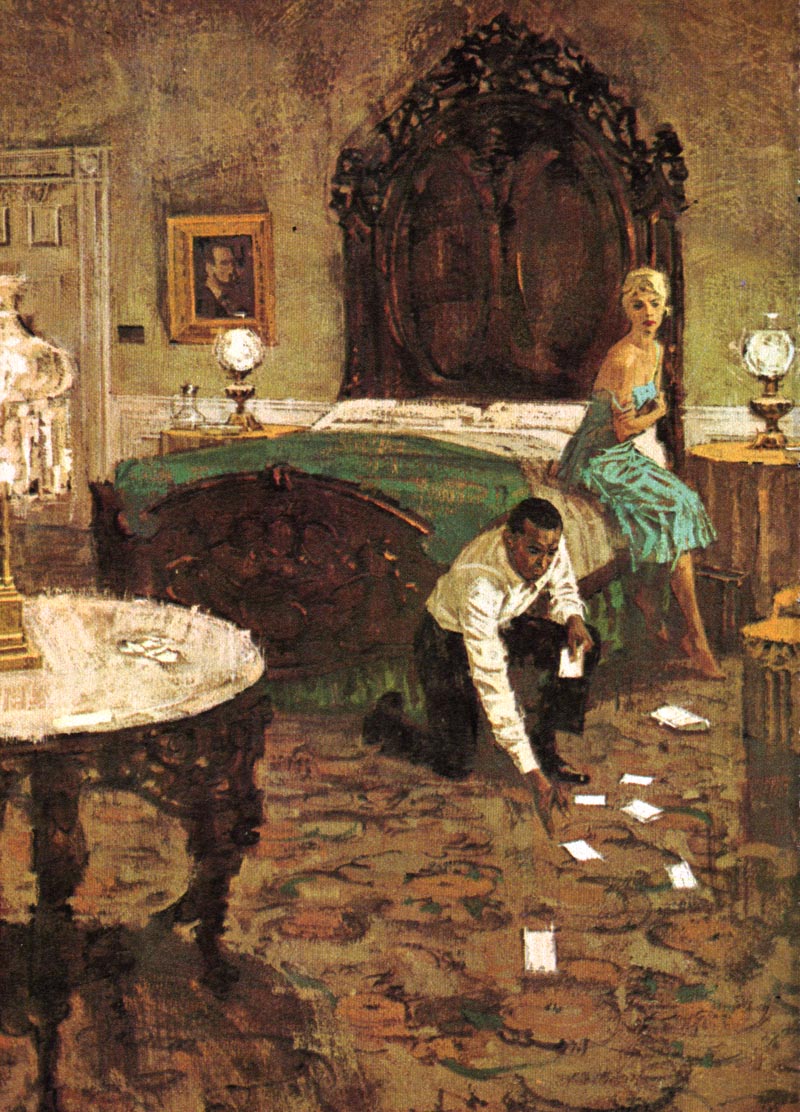
MC: Well I don't know that I can add any more, darling. I really don't know that I want to go back anymore. I'm 84 and I've done it. If you have specific questions that I could answer factually, ok, but I don't want to start digging up or talking or reading or writing or anything about it. I really don't.
LP: Sure, I understand. But even so, I really appreciate that you took this time to tell me all of this. That's just great.
MC: Well, bless your heart. Oh! John Gannam! Do you know his work?
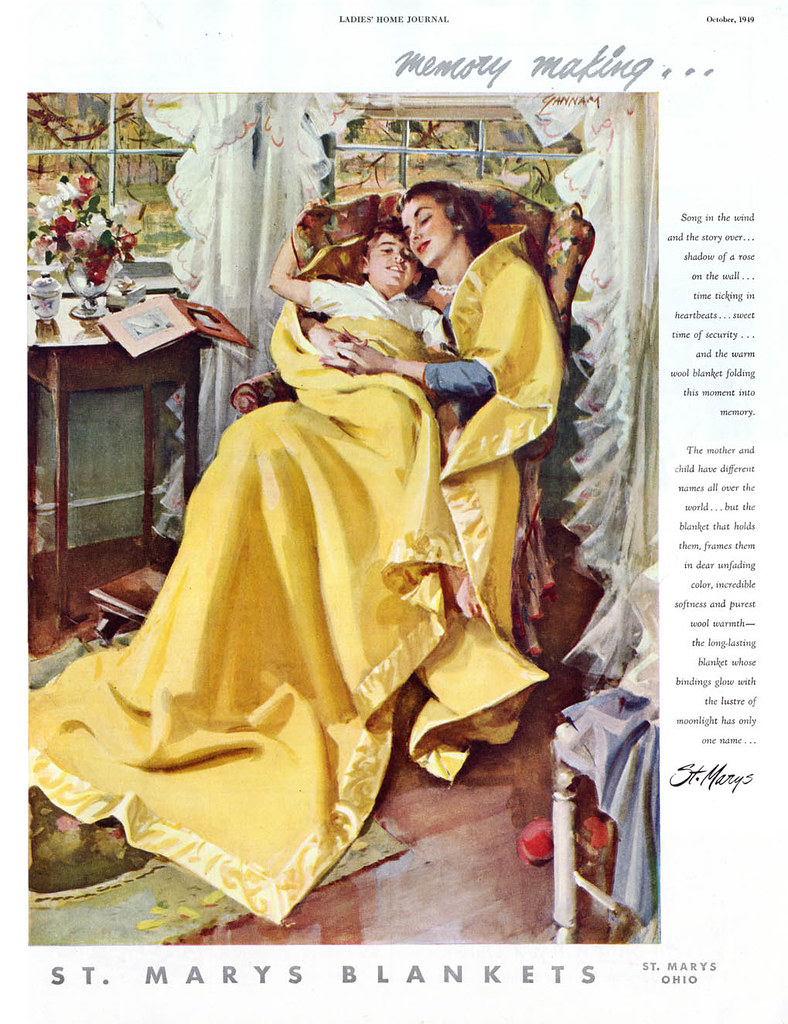
(above, 1949 ad art by John Gannam)
LP: Yeah, I've written about John Gannam as well, sure.
MC: Oooh man, he was great! The one's we loved the most were Al Parker and John Gannam - oh, and then Bernie Fuchs - he came along a little later.
(below, 1960 ad art by Bernie Fuchs)

LP: Of course. Now, I have to ask you; was he a big influence on your work? Bernie Fuchs?
MC: to a degree, yes.
LP: What about Bob Peak?
MC: No, if anybody, Bernie Fuchs was everybody's saint. He was about two years younger than I.
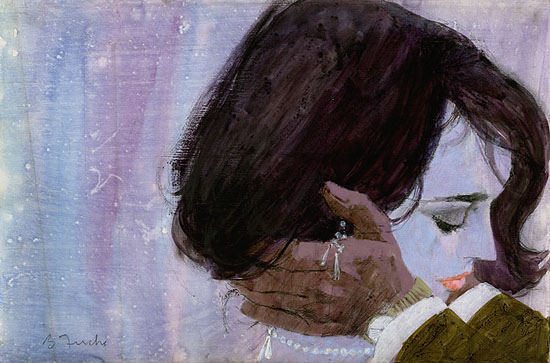
(above, 1960s story art by Bernie Fuchs)
LP: When you lived in Westport did you know him personally?
MC: No, at that time in Westport it was a very clique-y group.
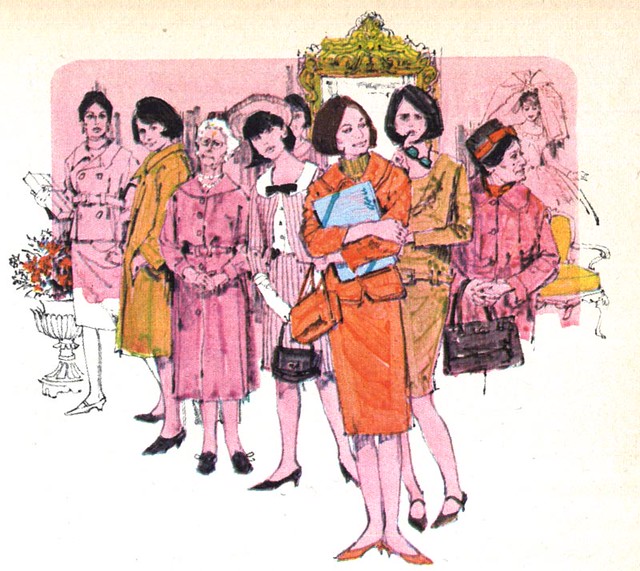
Who was the other one... oh, Bob Heindel. You know him? He was another one of that group of Bernie Fuchs' friends.
(below, Robert Heindel story illustration, 1967)
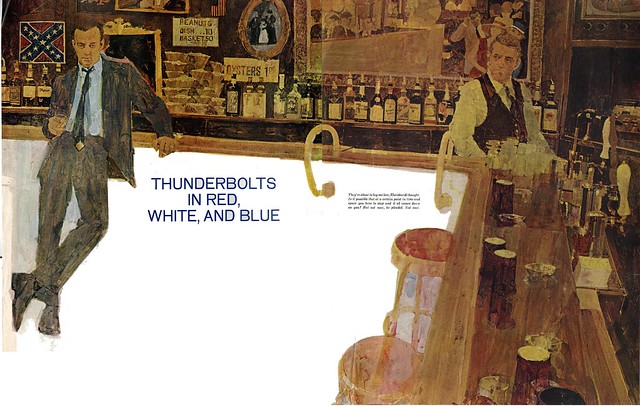
MC: By that time I was single and it was very new for a woman to be doing that type of work, illustration, in the '60s. So I didn't know Fuchs but I'll tell you who I did know... and I don't remember her last name, it was... Gloria something... and she was the wife of one of the artists and I loved her and she worked for me all the time as a model; the wife of one of the Westport artists and I know Bernie Fuchs used her a lot, too. And she used to say to me, "Marilyn every time I go to the library I bump into one of their wives. And every time I go to look through Albert Dorne's reference files one of the wives is there - and when I go to pick up photos from the photographer's, the wives are doing all the work. How the hell do you do it all?" And I said I just did it.
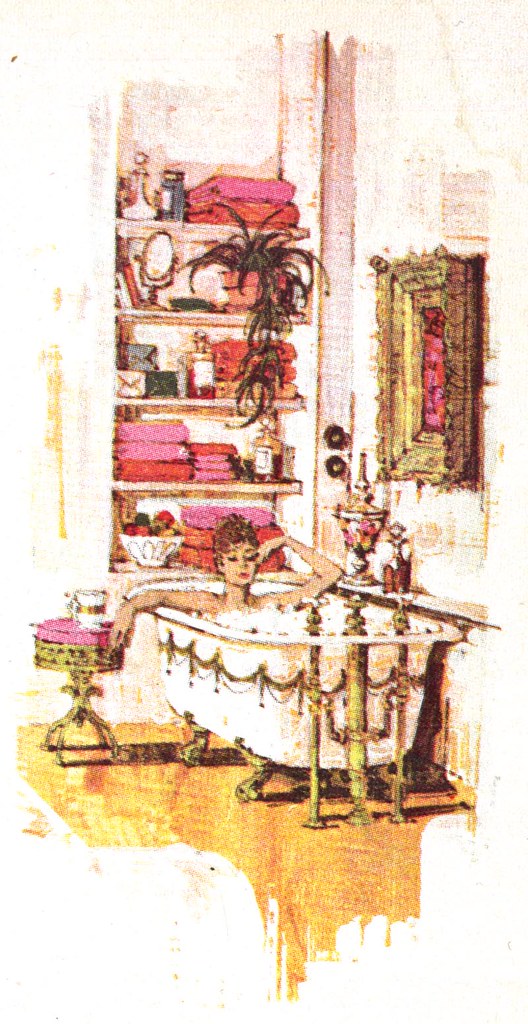
MC: I mean their wives did all that stuff so they [the artists] could stay in their little ivory towers of talent and greatness and self-importance. And the men would all go to lunch together at the different places. I mean they never became as big as Andrew Wyeth or deKooning or any of the great artists - so these people had to keep instilling in themselves how important they were.
LP: Now, did you feel excluded from all that because you were a single woman?
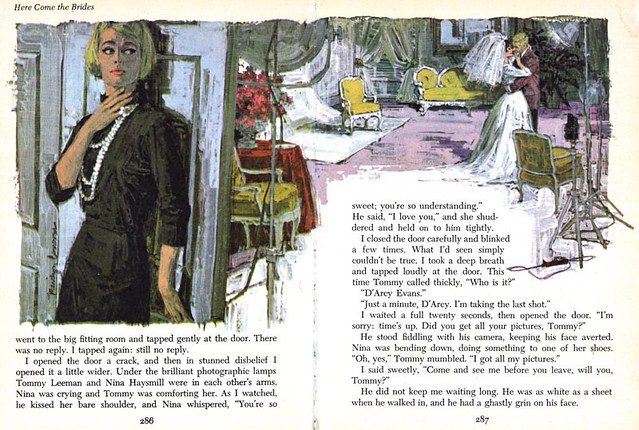
MC: No. Nooo. I didn't feel excluded. We were all just independent illustrators. We were all just too busy working.
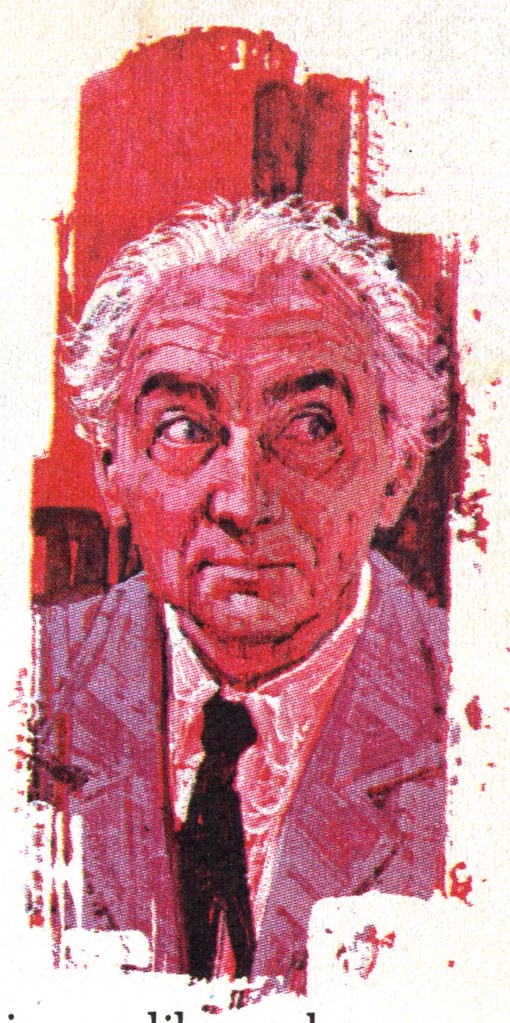
Continued tomorrow









Post a Comment